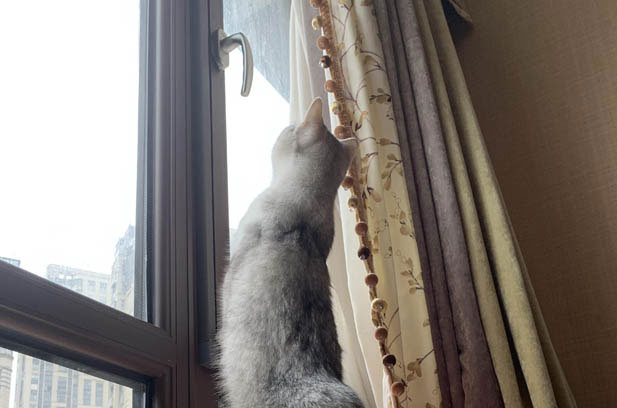When it comes to cat ownership, it’s crucial to understand that regardless of the breed, thorough research is essential. After all, cats and humans belong to different species, and their needs and behaviors can vary significantly. So, the question isn’t whether a cat is easy or difficult to raise; rather, it’s about finding a cat whose personality and habits align with your own lifestyle, personality, and home environment.
In my household, I have two silver shaded British Shorthairs and an American Shorthair. The silver shaded British Shorthairs are notably more inclined to sleep compared to the American Shorthair. They are generally less active, but this is a relative observation. All cats, regardless of breed, have their moments of wild energy and playfulness. It’s not uncommon for them to engage in energetic sprints around the house, which might lead to scratched sofas and curtains. As cat owners, we must be prepared for such eventualities.

One of the endearing qualities of silver shaded British Shorthairs is their affectionate and docile nature. They tend to be quite clingy, always seeking attention and affection from their owners. They enjoy being petted and will often curl up beside you for a cozy nap. Moreover, in my experience and that of my friends, they aren’t overly talkative. They don’t meow incessantly, which can be a relief for those who prefer a quieter living environment.
However, like every coin has two sides, silver shaded British Shorthairs also have their drawbacks. Their most prominent issue is excessive shedding. Their soft, plush fur seems to be constantly on the move, floating around the house and clinging to everything in sight. If you’re allergic to cat hair or frequently wear dark – colored clothing, owning a silver shaded British Shorthair might not be the best choice. Cleaning up the cat hair can be a time – consuming and never – ending task. You’ll find yourself constantly using a lint roller to remove the hair from your clothes, and regular vacuuming becomes a necessity to keep the house clean.
In addition to shedding, it’s also important to consider other aspects when choosing a cat. Different breeds may have different health predispositions. For example, some breeds are more prone to dental problems, while others may be at risk of certain genetic diseases. Researching these potential health issues in advance can help you be better prepared and ensure your cat receives appropriate medical care.
Furthermore, cats have individual personalities within each breed. Some cats may be more independent, while others are extremely dependent on their owners. Understanding your own preferences in terms of the level of interaction you desire from your pet is crucial. If you’re someone who works long hours and is rarely home, a more independent cat might be a better fit. On the other hand, if you have plenty of time to spend with your pet and enjoy a lot of cuddles and playtime, a more clingy cat will likely bring you more joy.
In conclusion, choosing a cat is a decision that should not be made lightly. It requires careful consideration of various factors, including the cat’s breed – specific traits, individual personality, and your own lifestyle and preferences. By doing your homework and making an informed choice, you can ensure a harmonious and fulfilling relationship with your feline companion for years to come.
Leave a Reply